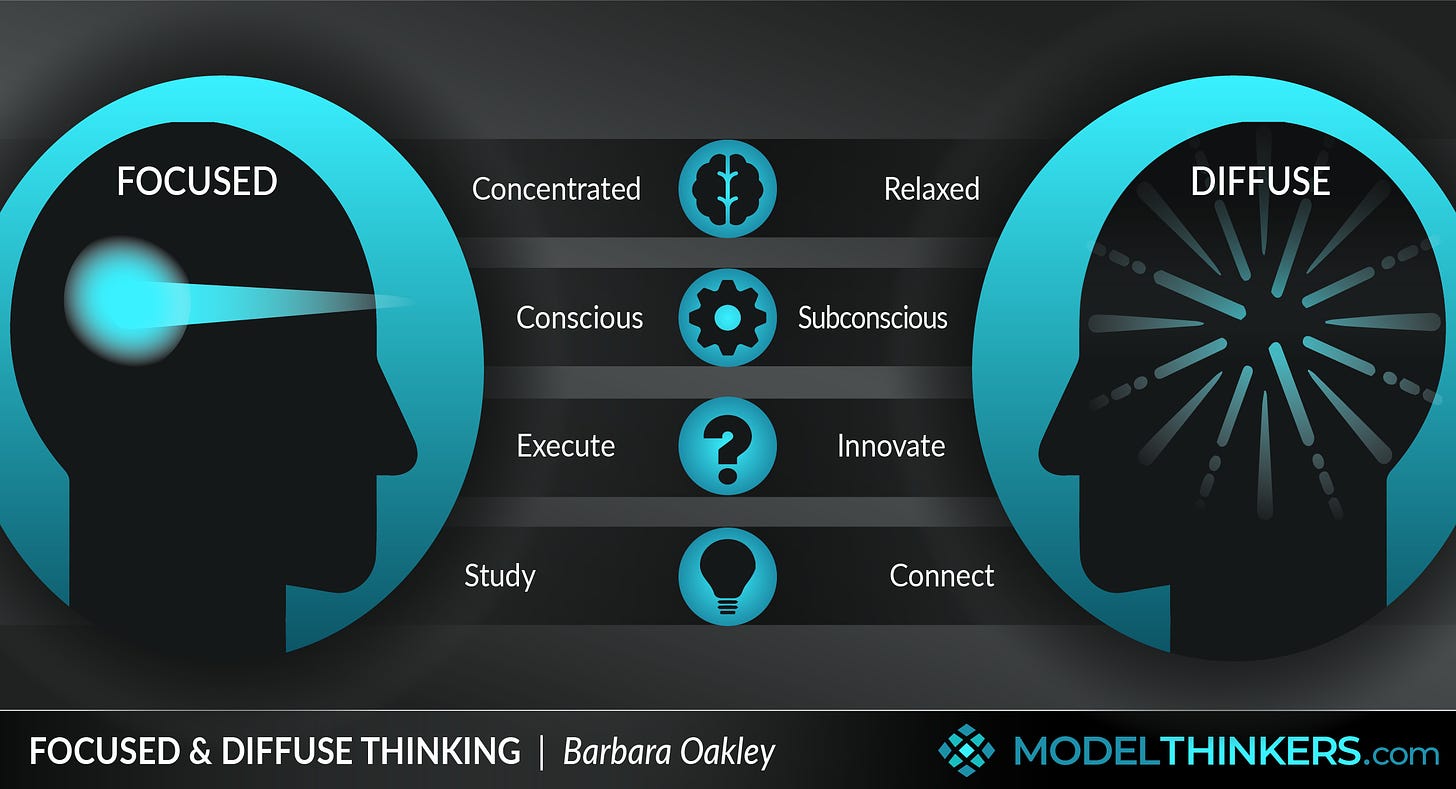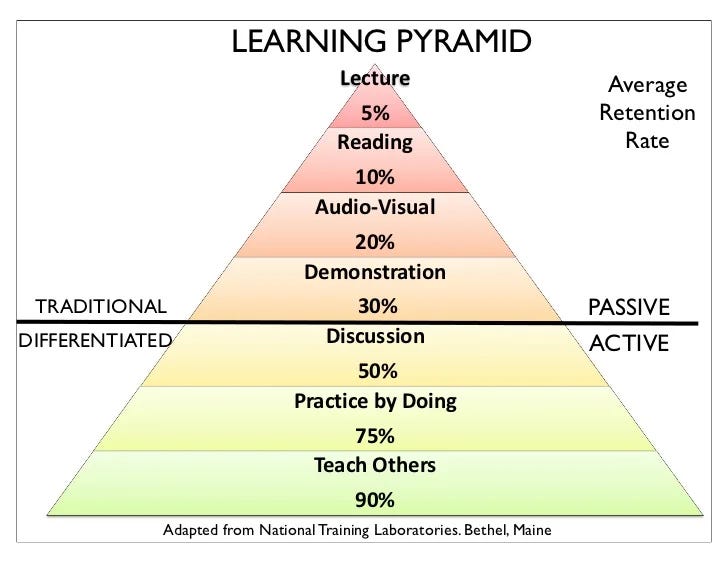Hey everyone,
The theme of this Future5 edition is HOW TO LEARN.
We are entering an era when learning and re-learning are essential for survival. Keeping up with exponential technologies means consistently re-training our brains, transforming our mindsets, and updating our belief systems.
I hope you enjoy today’s edition.
Please give me feedback in the comments so we can iterate and improve.
Have a wonderful weekend!
Misha
Here’s what you’re getting today:
Quote: There are no stupid questions.
Video: Your brain has two neural circuits.
Podcast: The keys to learning new skills as an adult.
Course: Learning how to learn.
Chart: The learning pyramid.
Quote:
“The illiterate of the 21st century will not be those who cannot read and write, but those who cannot learn, unlearn and relearn.” —Alvin Toffler
The first step to learning, unlearning, and relearning is asking questions.
There are no stupid questions. Every genuine question is useful and valuable. It opens the door to new ideas or information and expands your knowledge.
Ask more questions!
Video:
The Science of Learning
If you're having a hard time understanding something, it might be best to go away and come back later.
Your brain is constantly fluctuating between a learning or focused mode, and an understanding or diffused mode.
It just takes the decompressing part of your brain for it to all be unpacked.
It's called the neural chunk theory and you can learn to utilize it to your advantage by learning how to study differently.
Learn more in this remarkable video from Dr. Barbara Oakley, professor of engineering at Oakland University in Rochester, Michigan, and Ramón y Cajal Distinguished Scholar of Global Digital Learning at McMaster University:
Course:
Learning How to Learn
This course by Dr. Barbara Oakley teaches you how to learn art, music, literature, math, science, sports, and many other disciplines.
You learn how the brain uses two very different learning modes and encapsulates (“chunks”) information.
It also covers illusions of learning, memory techniques, dealing with procrastination, and best practices shown by research to be most effective in helping you master tough subjects.
There are four modules:
What is Learning?
Chunking
Procrastination and Memory
Renaissance Learning and Unlocking Your Potential
Learning How to Learn: Powerful mental tools to help you master tough subjects | Coursera
Podcast:
The Keys to Learning New Skills as an Adult
If you want to learn as an adult, you need two things:
a high level of urgency
focus
Learn more on how to learn as an adult from this powerful conversation between Dr. Andrew Huberman and Joe Rogan:
Chart:
The Learning Pyramid
The best way to learn is by teaching others.
According to the Learning Pyramid model, students retain about 90% of what they're able to teach to others.
If you can accurately and correctly teach a subject to others, you'll have a good understanding of the concepts and superior retention and recall.
I have found that researching and then writing about a topic is the quickest way to learn a new subject, technology, or industry.
Challenge yourself to Tweet, write a blog post, or give a talk on a new topic every week in 2023.







Excellent content, bravo
Insightful content.